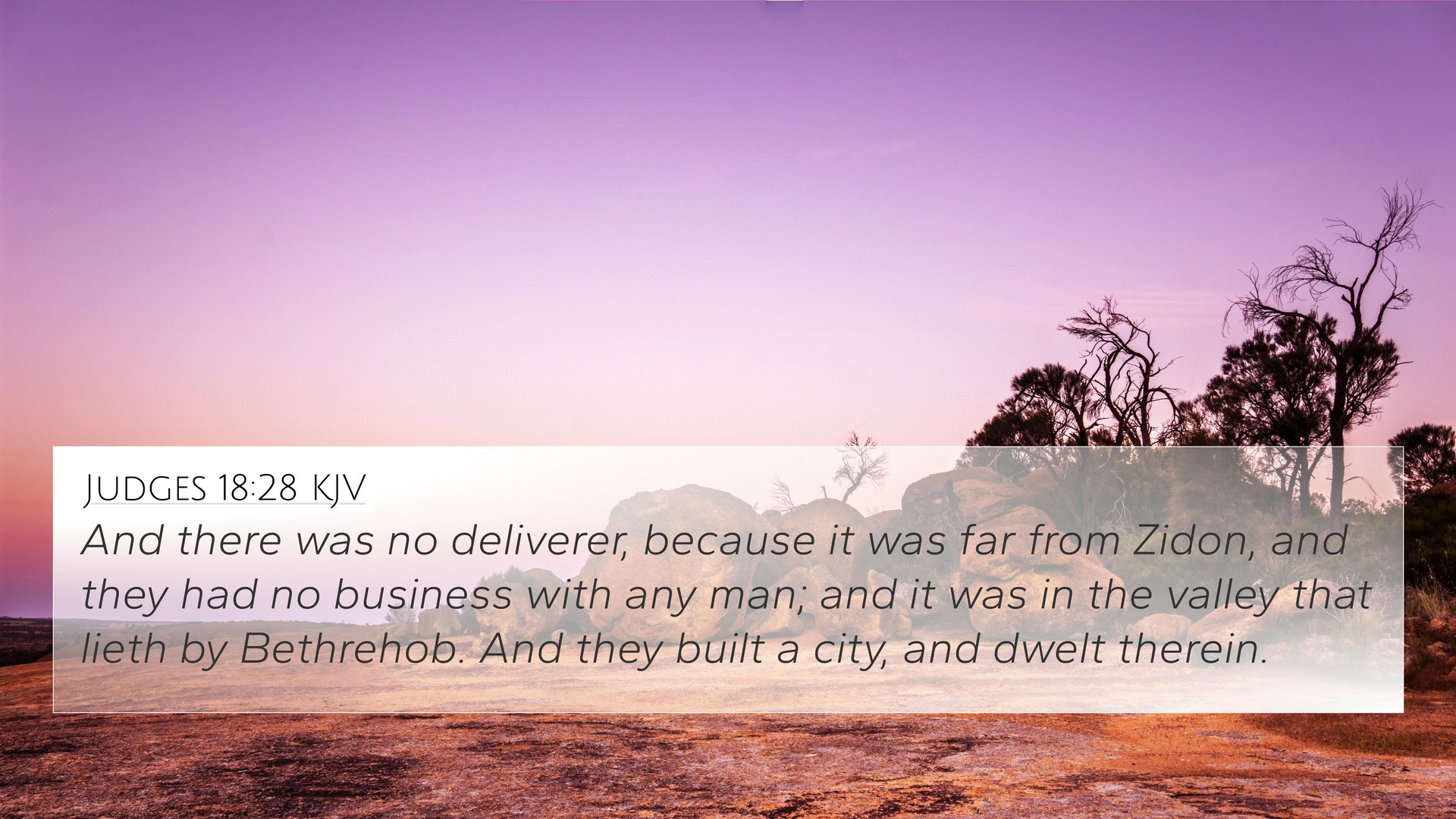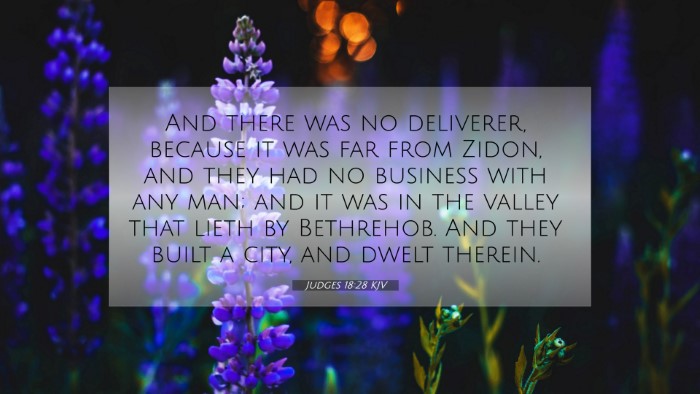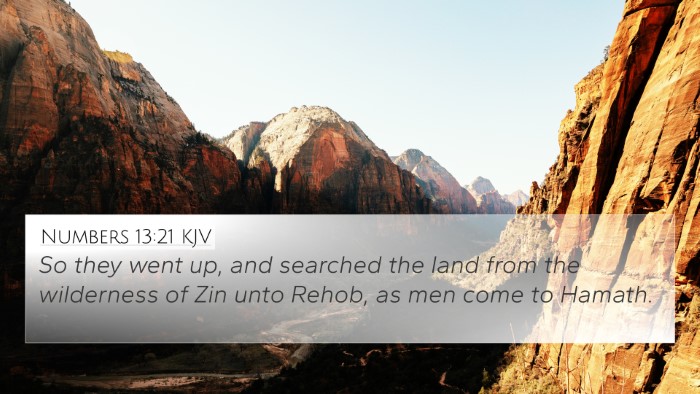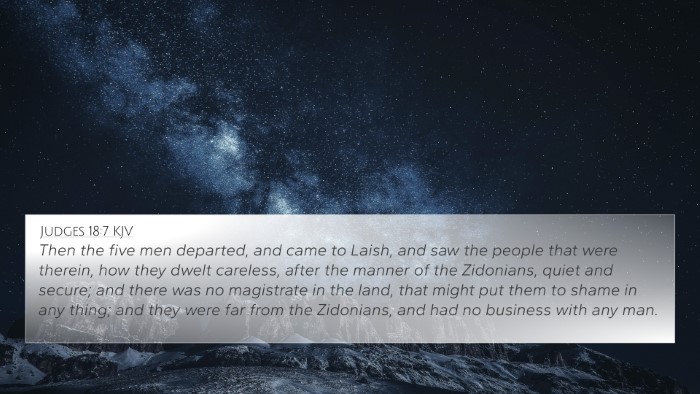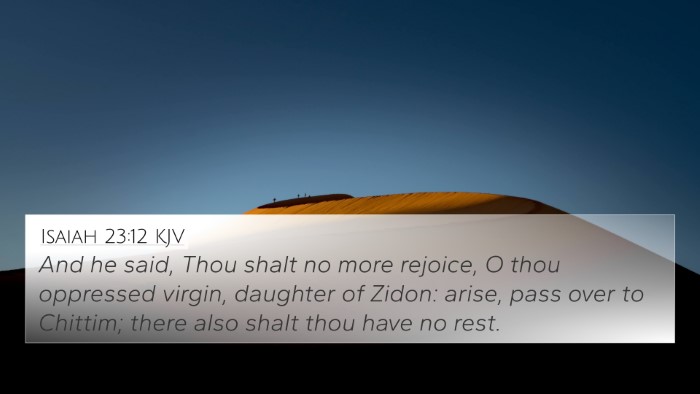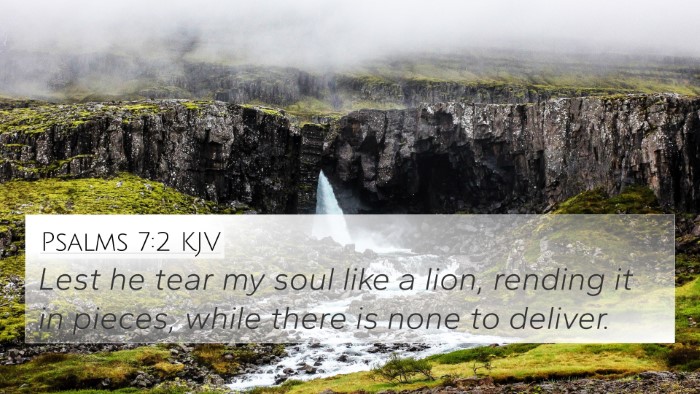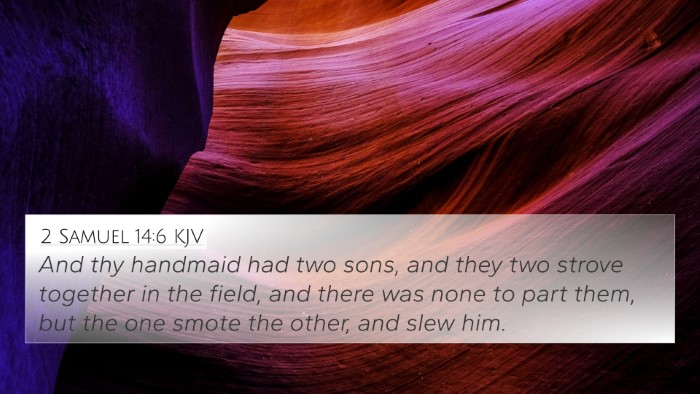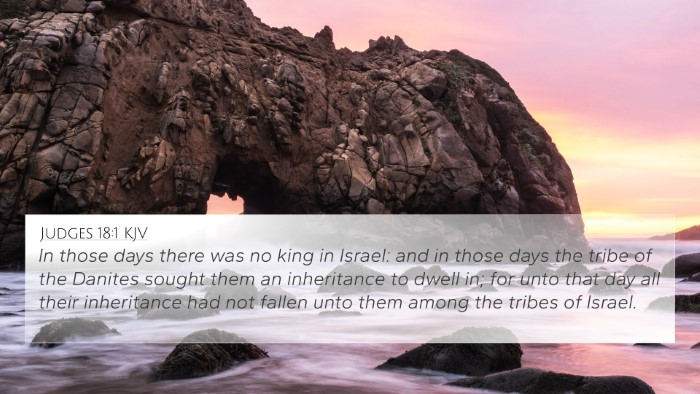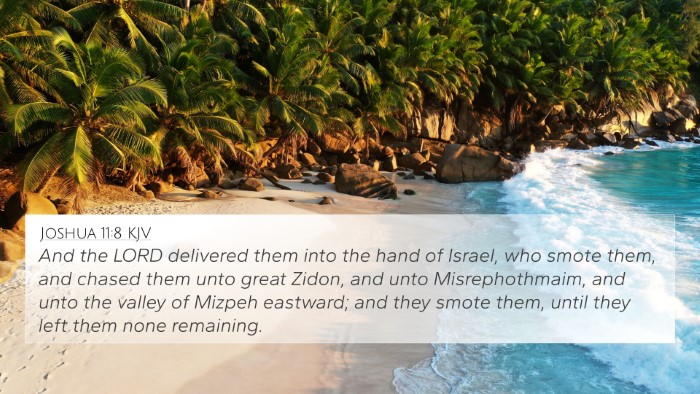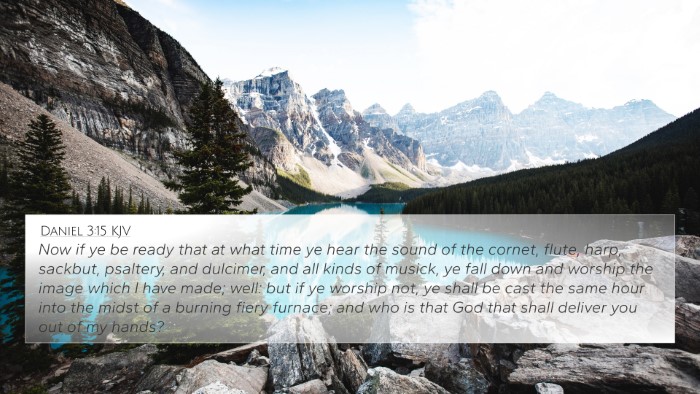Understanding Judges 18:28
Judges 18:28 speaks of a significant moment in Israel's history where the tribe of Dan, having
settled in Laish, encountered a peaceful town and captured it. This passage is rich in meaning and
interconnections that can be perceived through a comparative analysis of various biblical texts.
In this exploration, we will examine the implications of this verse through insights from notable
public domain commentaries, including those by Matthew Henry, Albert Barnes, and Adam Clarke.
Verse Context
Judges 18:28 states:
“And there was no deliverer, because it was far from Sidon, and they had no business
with any man; and it was in the valley that lieth by Beth-rehob. And they built a city, and dwelt
therein.”
Verse Interpretation
-
Historical Context: The verse fits into the narrative of the Judges period, illustrating
the challenges faced by the tribes of Israel. Matthew Henry notes that during this time, Israel was
without a king and thus lacked centralized governance, leading to instances of violence and
moral decline.
-
Geographical Significance: The mention of Sidon highlights the geographical and
economic isolation of Laish. Albert Barnes elaborates on how this isolation may have contributed to
Laish's vulnerability and the ease with which the Danites conquered it.
-
Thematic Implications: Adam Clarke posits that this captures the broader theme of
Israel's struggles and the consequences of disobedience to God's commands regarding territorial
allotments and conflicts with neighboring nations.
Cross-Referencing Biblical Texts
Understanding Judges 18:28 is enriched by examining its connections to other scriptures. Below are
some biblical cross-references that can deepen our understanding:
- Judges 1:34-36: This passage addresses the ongoing struggles of the tribe of Dan in
securing their inheritance, linking back to their eventual capture of Laish.
- Joshua 19:47: Here, we find the allotment of land to the tribe of Dan, emphasizing
their displacement and the shift of their territory.
- 1 Samuel 10:5: Samuel’s prophecy regarding the route that Saul would take aligns with
the geographical features discussed in Judges 18:28.
- Psalm 78:68-69: The psalmist reflects on God’s choice of Judah and Zion, which can be
compared to the fate of the northern tribes, including Dan, illustrating God's sovereign choices.
- Micah 1:10: The prophecy against the city of Laish speaks to its eventual destruction,
providing a broader prophetic context.
- Amos 1:10: This passage also addresses God's judgment on the inhabitants of Gilead,
where Laish was located, showing God's care for justice.
- Isaiah 10:30: The mention of the valley can help illustrate the geographic context
of Israel's history.
Thematic Connections
The capture of Laish by the tribe of Dan can be examined through several thematic connections found
in other biblical texts. Connections between Bible verses shed light on not only the event's significance
but also God's overarching narrative regarding Israel:
-
Covenant Unfaithfulness: Many verses throughout the Old Testament reveal God’s
lament over His people's disobedience, providing a thematic backdrop to Judges 18:28.
(Jeremiah 3:6-10)
-
Judgment and Deliverance: The cyclical nature of judgment and deliverance in the
book of Judges is emphasized in many chapters and is reflected in the consequences faced by the
tribes, including the Danites.
(Judges 2:16-19)
-
The Role of Idolatry: The influence of idol worship, as seen later in the narrative,
presents a critical theme that also ties to Judges 18:28.
(Judges 18:30-31)
Tools for Bible Cross-Referencing
For those seeking to delve deeper into the links between Bible verses, several tools and resources can
aid in comprehensive Bible cross-reference studies:
- Bible Concordance
- Bible Cross-Reference Guide
- Cross-Referencing Bible Study Methods
- Bible Reference Resources
- Comprehensive Bible Cross-Reference Materials
Conclusion
Judges 18:28 not only reflects an event in the historical narrative of Israel but also invites us to
engage in a deeper exploration of the connections between Biblical texts. Through examining cross-references
and thematic linkages, we gain a more profound understanding of God's plans, purposes, and the moral
lessons that continue to resonate through the ages.
By employing tools for cross-referencing and diving into the interconnectedness of the scriptures,
believers can enhance their study and comprehension of the Bible, leading to enriched spiritual growth
and understanding.
